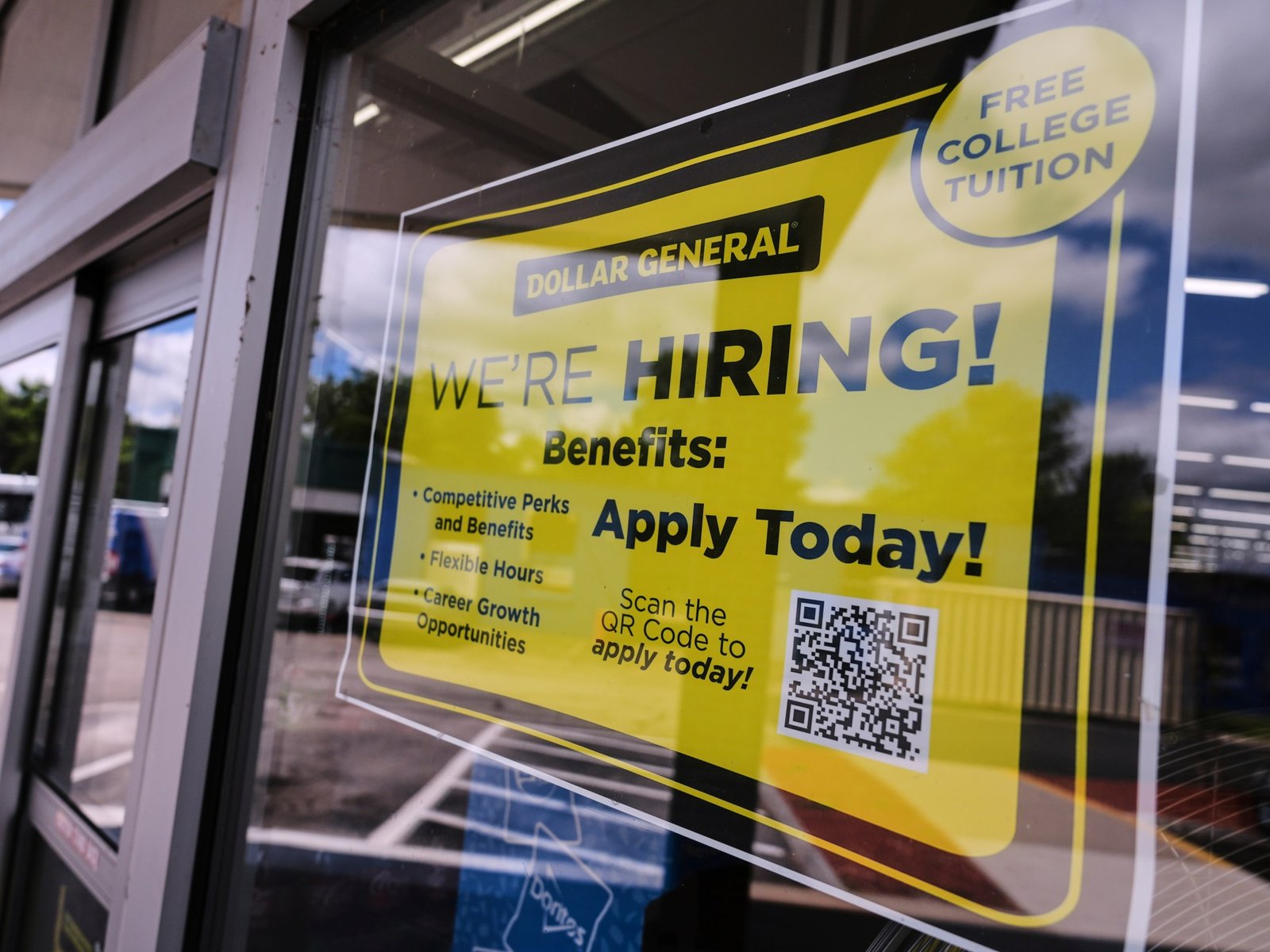Following a disappointing jobs report last month, American consumers are growing increasingly wary about their financial outlook, leading to a decrease in spending.
Recent data reveals a rising sense of pessimism among Americans regarding the economy of the United States, sparked by a weak job report highlighting vulnerabilities in the labor market.
The Conference Board announced on Tuesday that its consumer confidence index has dropped to 97.4 this month, down from a revised figure of 98.7 recorded in July.
“Significantly, consumer sentiment about current job availability has fallen for the eighth straight month,” stated Stephanie Guichard, a senior economist at the Conference Board.
“At the same time, concerns about future job availability have risen slightly, and expectations regarding future income have waned somewhat.”
Consumers are voicing concerns about their earnings, as indicated by a 1.2-point decline in short-term business condition expectations, now at 74.8. Typically, a reading below 80 suggests an impending recession.
Labor Market Challenges Drive Economic Concerns
Despite historically low unemployment rates and layoffs, there has been a visible decline in the labor market this year, with growing indications that job seekers are facing challenges.
In July, US employers added only 73,000 jobs, significantly below the anticipated 115,000. Additionally, revisions from the Bureau of Labor Statistics revealed a downward adjustment of 258,000 jobs from prior estimates for May and June, raising the unemployment rate to 4.2 percent from 4.1 percent.
Another government report indicated that job openings in the US shrank to 7.4 million in June, down from 7.7 million in May. The number of employees voluntarily leaving their positions—a possible indicator of confidence in finding new employment—has also seen a decrease.
Further data regarding job increases will be released next week, covering August’s job gains and June’s job openings.
The Conference Board’s consumer confidence survey highlighted a growing concern over high prices and inflation, often mentioned alongside the impacts of tariffs.
Other government reports this month showed consumer prices remained relatively stable from June to July, while wholesale prices unexpectedly surged last month.
Tariffs imposed during President Trump’s administration are contributing to rising costs for consumers.
In August, the percentage of consumers anticipating a recession within the next year jumped to its highest level since April, coinciding with the onset of tariffs, according to the Conference Board.
The survey also noted an increase in respondents intending to purchase a vehicle, while interest in home buying remained steady after a dip in July.
Additionally, fewer consumers expressed intentions to buy major items, including appliances, with noteworthy differences across categories. Plans for vacations, both domestic and international, also declined.

